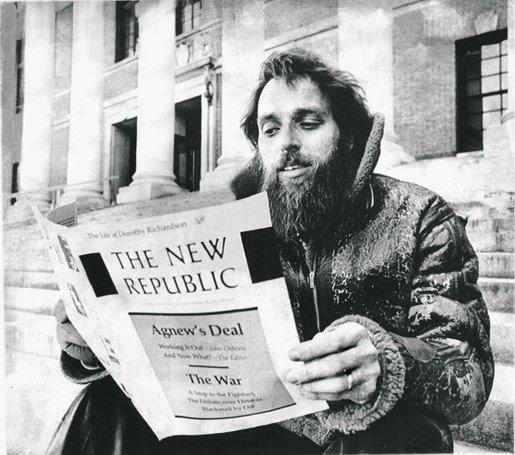The reason why white people, no matter how noble, can’t speak for people of other races is that human experiences vary based on color, class, gender and other categorizations. It’s just a fact. So while all manner of well-heeled New York and Beltway journalists (almost all white) decried what’s happened recently at the New Republic–and there’s certainly been something important lost in the tumult–Ta-Nehesi Coates of the Atlantic saw things somewhat differently. He recognized a publication staffed almost exclusively by caucasians which has been horribly racist toward African-Americans, pointing fingers at them and blaming them, especially during the often-odious Marty Peretz reign, marred as it was by bigotry and warmongering. And while many scoffed that the venerable periodical might now become Buzzfeed or Gawker, Coates points out that such online publications are more enlightened about race than TNR has been. An excerpt:
“TNR made a habit of ‘reflecting briefly’ on matters that were life and death to black people but were mostly abstract thought experiments to the magazine’s editors. Before, during, and after Sullivan’s tenure, the magazine seemed to believe that the kind of racism that mattered most was best evidenced in the evils of Afrocentrism, the excesses of multiculturalism, and the machinations of Jesse Jackson. It’s true that TNR’s staff roundly objected to excerpting The Bell Curve, but I was never quite sure why. Sullivan was simply exposing the dark premise that lay beneath much of the magazine’s coverage of America’s ancient dilemma.
What else to make of the article that made Stephen Glass’s career possible, ‘Taxi Cabs and the Meaning of Work’? The piece asserted that black people in D.C. were distinctly lacking in the work ethic best evidenced by immigrant cab drivers. A surrealist comedy, Glass’s piece revels in the alleged exploits of a mythical Asian-American avenger—Kae Bang—who wreaks havoc on black criminals who’d rather rob taxi drivers than work. The article concludes with Glass, in the cab, while its driver is robbed by a black man. It was all lies.
What else to make of TNR sending Ruth Shalit to evaluate affirmative action atThe Washington Post in 1995? ‘She cast Post writer Kevin Merida as some kind of poster boy for affirmative action when in fact he had risen in the business for reasons far more legitimate than her own,’ David Carr wrote in 1999. Shalit’s piece wasn’t all lies. But it wasn’t all true either. Shortly after the article was published, she was revealed to be a serial plagiarist.
TNR might have been helped by having more—or merely any—black people on its staff.”
Tags: Ta-Nehisi Coates

